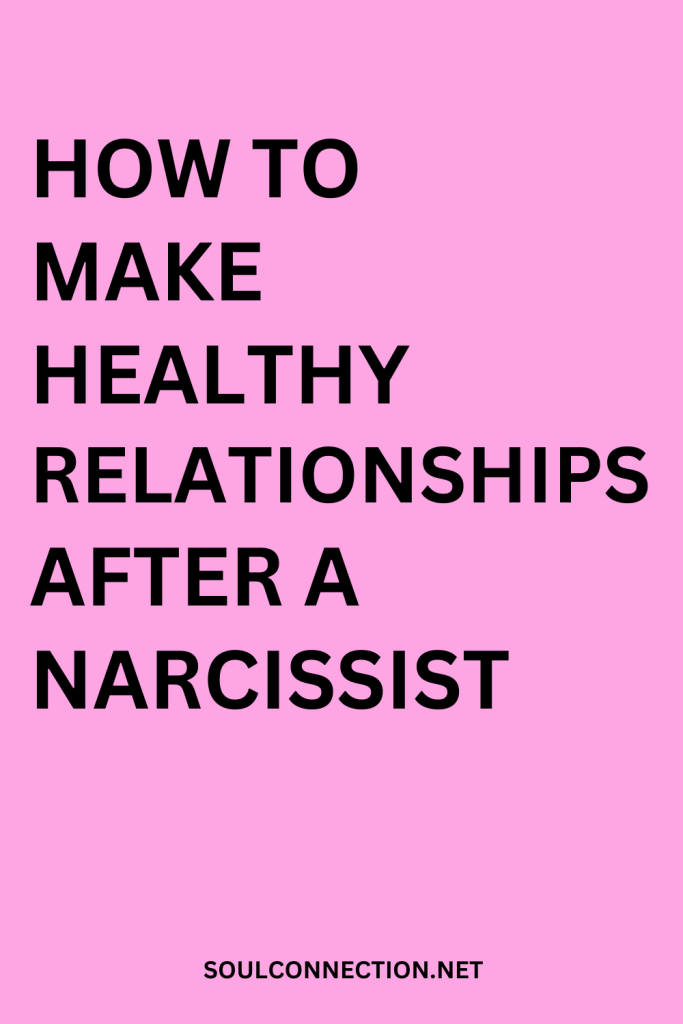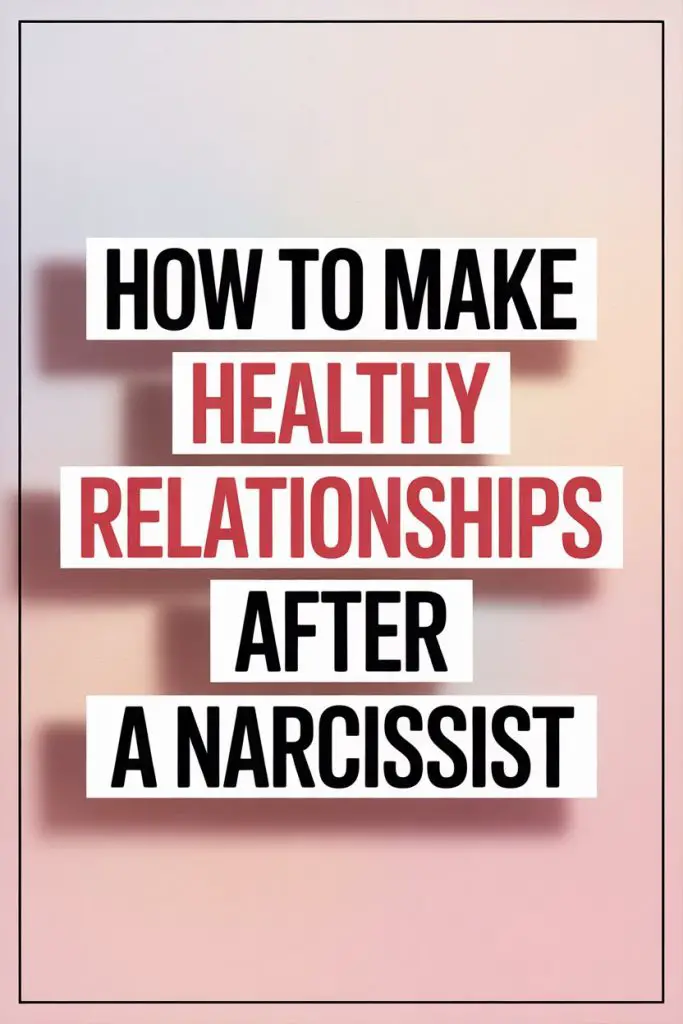Surviving a relationship with a narcissist deserves a medal, a strong drink, or possibly both.
Once you’ve wriggled free of the emotional python, the idea of starting a healthy relationship can sound about as relaxing as wrestling a raccoon in a phone booth.
Still, love isn’t an endangered species—just a slightly elusive one when your compass has been spun by narcissistic nonsense.
Good news: building real, nourishing connections is absolutely possible, even if your trust in humanity is currently at the “side-eyeing houseplants” stage.
Recalibrating Your Inner Compass
Escaping narcissistic games leaves your built-in relationship radar twitchier than a squirrel at a dog park. Suddenly, every harmless quirk from a new date might scream “red flag” (spoiler: not everyone who texts twice is plotting your doom).
The trick is learning to spot healthy patterns, not just avoid the toxic ones.
Start with yourself. Not in a “blame the victim” way, but as an act of radical self-kindness. After narcissistic gaslighting, it’s easy to lose track of your values, boundaries, and what makes you light up.
Grab a notebook or your nearest napkin and jot down: What qualities do I want in a partner? How do I want to feel in a relationship? If your answers include “not like a human doormat,” you’re already ahead of the curve.
Small but mighty, self-awareness is the flashlight that lights up the shadowy corners, so you’re less likely to trip over the same tricks again.
Trust Issues: Rebuilding Your Relationship GPS
Trust after a narcissist is like that loaf of bread you forgot in the cupboard—crusty, fragile, suspiciously green in places. But, much like bread, trust can be baked fresh. The recipe just takes patience.
Begin with yourself. Can you rely on your own gut feelings again? Narcissists are experts at making you doubt that internal alarm bell. Reconnect with it.
If someone’s behavior feels off, question it. If it feels safe, let yourself notice that too.
Next step: baby steps in new relationships. Try trusting someone with a small, inconsequential secret or favor. Watch how they handle it.
No instant trust falls required—think more along the lines of “can I trust you to water my plant without hosting a house party?”
Over time, as people earn your trust in small ways, you’ll find it easier to trust with the big stuff. (And if someone eats your snacks without asking, that’s just rude, not necessarily a red flag. Unless they gaslight you about the snacks.)
Red Flags Versus Pink Flags
Having survived a narcissist, your red flag detector is probably turned up to 11. Trouble is, not every awkward moment or mismatched habit is a sign of impending doom.
The key is learning to spot the difference between real danger and routine human weirdness.
Red flags: Lying, controlling behaviors, disrespect of boundaries, habitual blame-shifting, or total lack of empathy. If you see these, trust your instincts—no need to knit a scarf out of all those flags.
Pink flags: Minor things that make you uneasy but aren’t dealbreakers—maybe they’re a little messy or slow to text back. These deserve a conversation, not a panic button.
Healthy relationships allow for open, honest discussion about things that bug you. Anyone worth your time will be willing to work through small stuff without melting down or playing mind games.
Reclaiming Boundaries and Actually Sticking to Them
Narcissists treat boundaries the way toddlers treat bedtime: with deep contempt and creative loopholes. After that experience, setting limits can feel like you’re being mean. You’re not.
Boundaries are how you teach people to treat you.
Want respect? State your needs clearly. Want a night off for self-care? Say it.
If someone pushes back or tries to guilt-trip you, don’t be afraid to enforce consequences—a gentle “no,” taking space, or, if necessary, exiting stage left.
Practice stating boundaries in low-pressure situations: “I don’t feel like Italian tonight, thanks,” or “Actually, I need some solo time.” The more you flex this muscle, the easier it gets.
The right people won’t just tolerate your boundaries—they’ll appreciate them, because that means they can trust you to honor theirs too.
Communication: Less Mind Reading, More Honesty
Surviving a narcissist often means learning how to tiptoe, edit your words, or read the weather patterns in someone’s mood. In a healthy relationship, you can stop the interpretive dance and say what you mean.
Speak honestly—with kindness. If you’re upset, say so. If you want reassurance, ask. No one is a telepath, and no one expects you to be one either.
Communication is a two-way street, not a one-woman monologue or a guessing game.
If your partner responds with vulnerability and respect, you’re on the right track. If they act like you’ve just declared war on their ego, it’s time to reconsider the match.
Healing Your Relationship with Yourself
Narcissistic relationships have a nasty way of leaving you doubting your worth. Healing isn’t just about finding a new partner; it’s about falling back in love with yourself.
And yes, that sounds like a cheesy line from an Instagram meme, but it happens to be true.
Invest time in hobbies, friendships, and solo adventures that light you up. The more joy you reclaim outside of romance, the less you’ll settle for scraps in your love life.
Self-respect is magnetic; it calls in people who respect you too.
Therapy isn’t just for movie characters with dramatic backstories, either. A good therapist can help you sort out lingering baggage, rewrite old narratives, and build a sturdier sense of self.
Setting Realistic Expectations for New Love
A relationship after a narcissist doesn’t need to be a fairy tale to be worthwhile. Aim for real, not perfect.
Healthy love contains disagreements, awkward silences, and mismatched taste in pizza toppings. The goal isn’t to find someone flawless, but someone who’s willing to grow alongside you, respect your boundaries, and own up to their own flaws.
Give yourself space to learn. Maybe the first person you date isn’t “the one.” That’s alright—think of it as a test drive, not a legally binding contract.
Release yourself from the pressure to pick perfectly. Healthy love is a series of choices, not a magical soulmate lottery.
Enlisting Your Support Squad
Rebuilding trust in romance is hard. Doing it solo is harder. Lean on friends, family, or the neighbor who brings your bin in when you forget (kindness counts).
Share your experiences, seek advice, or just vent about the absurdities of dating again. The more you normalize your feelings, the less alone you’ll feel.
At the very least, your best mate probably has stories that will make your own look tame by comparison.
If your social circle is slim on empathy or experience, find support groups—online or in person—filled with people who get it. There’s no shame in needing backup. Even superheroes need sidekicks.
Relapse Prevention for Old Patterns
Healing isn’t a straight line—it’s more like a game of Snakes and Ladders with extra snakes. Every so often, you might notice yourself drawn to familiar drama or excusing someone’s bad behavior because it reminds you of the past.
Check in with yourself: Am I people-pleasing? Am I ignoring my gut? Am I downplaying bad behavior to avoid being alone?
Write down your non-negotiables and keep them handy. Review them when you start to waver.
If you notice a toxic pattern creeping back, reach out for support or hit pause on the relationship. Protecting your peace is always worth it.
Dating Again with Eyes (and Heart) Wide Open
Starting to date again can feel like auditioning for a comedy you never signed up for. Every app profile, every awkward coffee chat, every “what do you do for fun?” can trigger a fresh wave of nerves. That’s normal.
Be gentle with yourself. Take breaks if needed. Set limits on how much time you spend chatting with strangers about their favorite cheese.
Approach new people with curiosity instead of suspicion. Ask questions. Watch how they respond under stress or when you say “no.” Healthy partners reveal themselves not through grand gestures, but through consistent, small acts of integrity.
Enjoy the process—awkward moments, cringey stories, and all. Finding love after a narcissist is possible, and you don’t have to sacrifice your standards (or your sanity) to get there.
Moving Past Survival Mode
Relationships after a narcissist aren’t about dodging bullets—they’re about finding peace, joy, and growth. It’s not just about avoiding the mistakes of the past, but building something better for your future.
You’re not broken, you’re not “too much,” and you definitely aren’t destined to repeat old patterns forever. With self-awareness, boundaries, support, and a dash of skepticism, healthy love is possible—messiness and all.
Healthy relationships won’t erase old scars, but they will help you write new stories. And that’s worth far more than a lifetime of walking on eggshells.
Onward, to love that feels like freedom—not a tightrope act.


